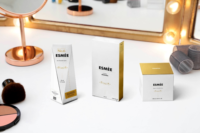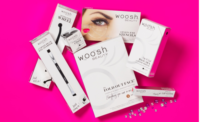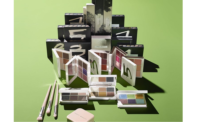Brand Packaging: Social Media Influencers
Beauty Packaging & Booze Packaging
A Tale of Two Social Media Influencers Who Built Disruptor Brands










Two unconventional influencers have used social media to amass a loyal following to build multi-million dollar brands based on their unique — and often polarizing — personalities.
BEAUTY
In 2004, Jeffrey Lynn Steininger created a Myspace profile with the moniker Jeffree Star to promote his gender-bending music. By 2006 he was the social media platform’s most followed person. No longer satisfied with music, he began posting makeup tutorial videos on Youtube in 2009. His catchy vernacular, over-the-top personality and confessional transparency make the videos on his Youtube channel akin to a campy game of truth or dare “dare” episodes such as, “Getting a Tattoo from Yelp’s Worst-Rated Tattoo Shop” and “Trying Dollar Tree Makeup for the First Time.” The “truth” episodes reveal the ugly side of the beauty business including the time professional counterfeiters broke into his warehouse and stole $2.5 million worth of yet-to-be released product.
In 2014, the beauty influencer used his entire savings to create an ecommerce makeup brand called Jeffree Star Cosmetics. The brand launched with a liquid lipstick. 30,000 units sold in minutes without any media, marketing or promotion outside of his own social media platforms. The private company now includes a full spectrum of beauty products, tools and branded clothing, which is distributed by Killer Merch, a company Star co-owns. The company’s recent holiday launch generated so much excessive traffic that Shopify, JeffreeStar Cosmetics.com and partner Morphe’s website crashed.
24 Karat Gold Packaging Case Study
Jeffree Star Cosmetics collaborated with Impress Communications to create packaging for the color pallet 24 Karat Gold, so the box had to shine. It was made using gold foil board.
Impress tinted the foil board with a transparent color to achieve the right “icy” shade of light blue, which allowed the board’s shimmer to pop through. Two hits of white ink and black for the barcode were pressed simultaneously. A special order of Kurz foil made the logo pop and created an impactful final touch.
THE BOOZE
Known by his handle “The Fat Jewish,” Instagram influencer Josh Ostrovsky built a following by searching the web for memes and images and adding his own humorous, often self-deprecating captions. Being a curator of irreverent content resonated with 10 million followers — most who are millennials.
Ostrovsky knew that the hashtag #rosé was popular on Instagram and the drink resonated with his audience. The Rosé trend reached a tipping point in 2014 when the gossip media began reporting on a rosé storage in the celebrity enclave, South Hampton. The following summer Ostrovsky, David Oliver Cohen, Tanner Cohen and Alexander Ferzan launched White Girl Rosé. They named it White Girl Wine in honor of “White Girl” Babe Walker, the faux persona invented by the Cohens, who tweet under the handle @WhiteGrlProblem. Babe Wine packages its pinot grigio, rosé and red wines in Instagrammable-branded aluminum cans, and refers to itself as “the official wine of daydrinking.”
Although the response to the product was positive and sales were strong, the co-founders quickly discovered that they would need to sell through distributors. They describe the current system as three-tiered: Caciattory Fine Wines, a California-based manufacturer, produces the rosé blend, it is then sold to a distributor which then retails the product to customers. After a year of working with lawyers to become licensed, White Girl Wine officially launched its own ecommerce store to retail the beverages directly. It also launched an app, called “So Us,” where customers can order up rosé on-demand, and create memes combining their own photos with the founders’ favorite quotes, such as: “This Is So Us,” “Stay Basic” and “Best Friends But Not Really.” Distribution wasn’t the only obstacle, Ostrovsky, who is used to having virtually limitless creative control on social media, had to adjust his messaging to comply with the safety restrictions for marketing alcohol while retaining followers.
Ostrovsky often half-jokingly said that he wanted Babe to be the Bud Light of wine. Last July AB InBev purchased the wine brand. Terms of the purchase were not disclosed but a source close to the deal said it is AB InBev’s biggest investment in wine to date. In November, Babe became the official wine sponsor of the NFL, a partnership that will bring Babe wine to the masses.
Looking for a reprint of this article?
From high-res PDFs to custom plaques, order your copy today!











